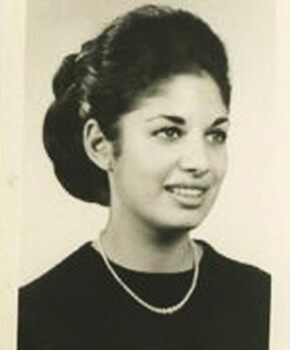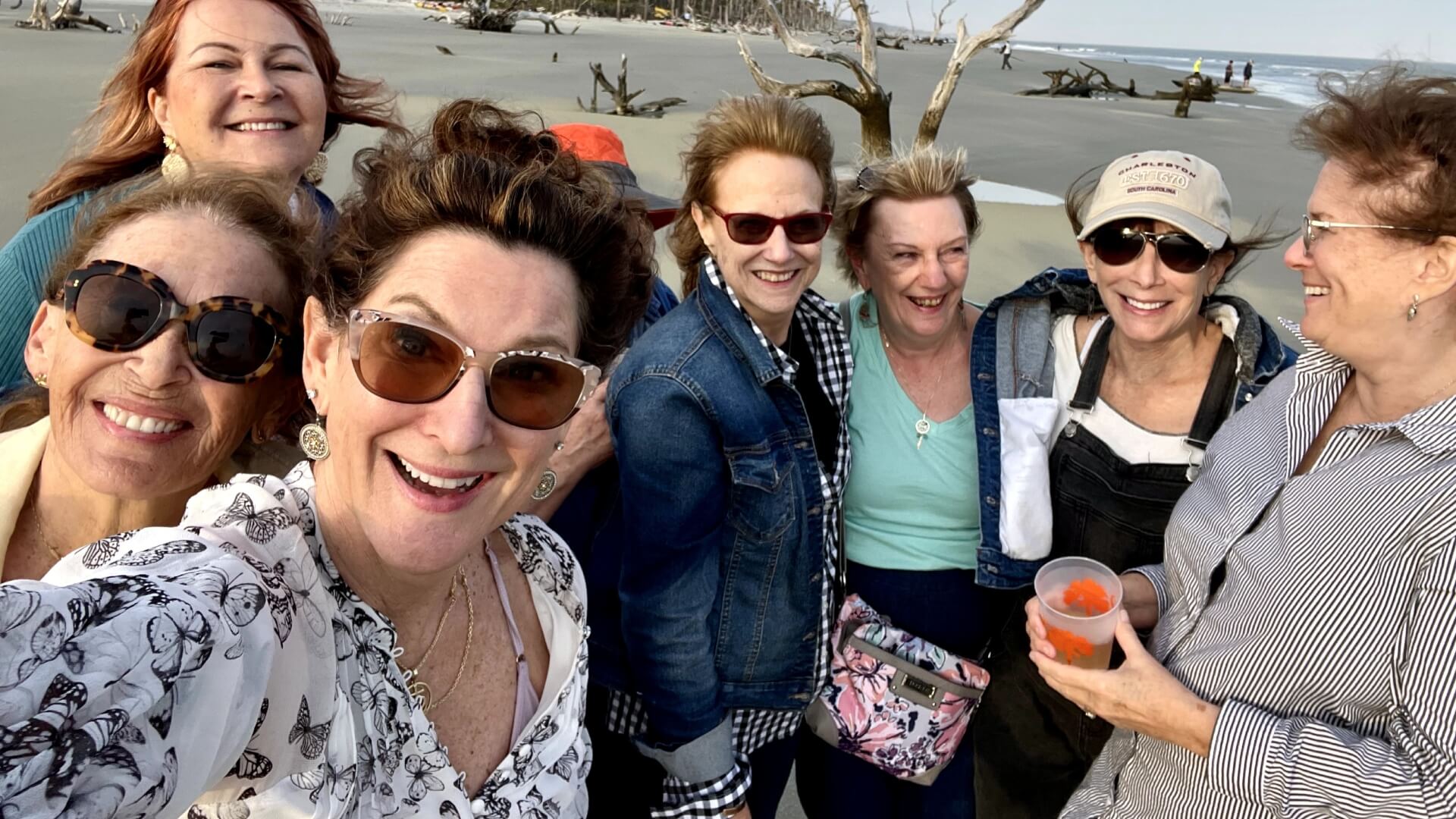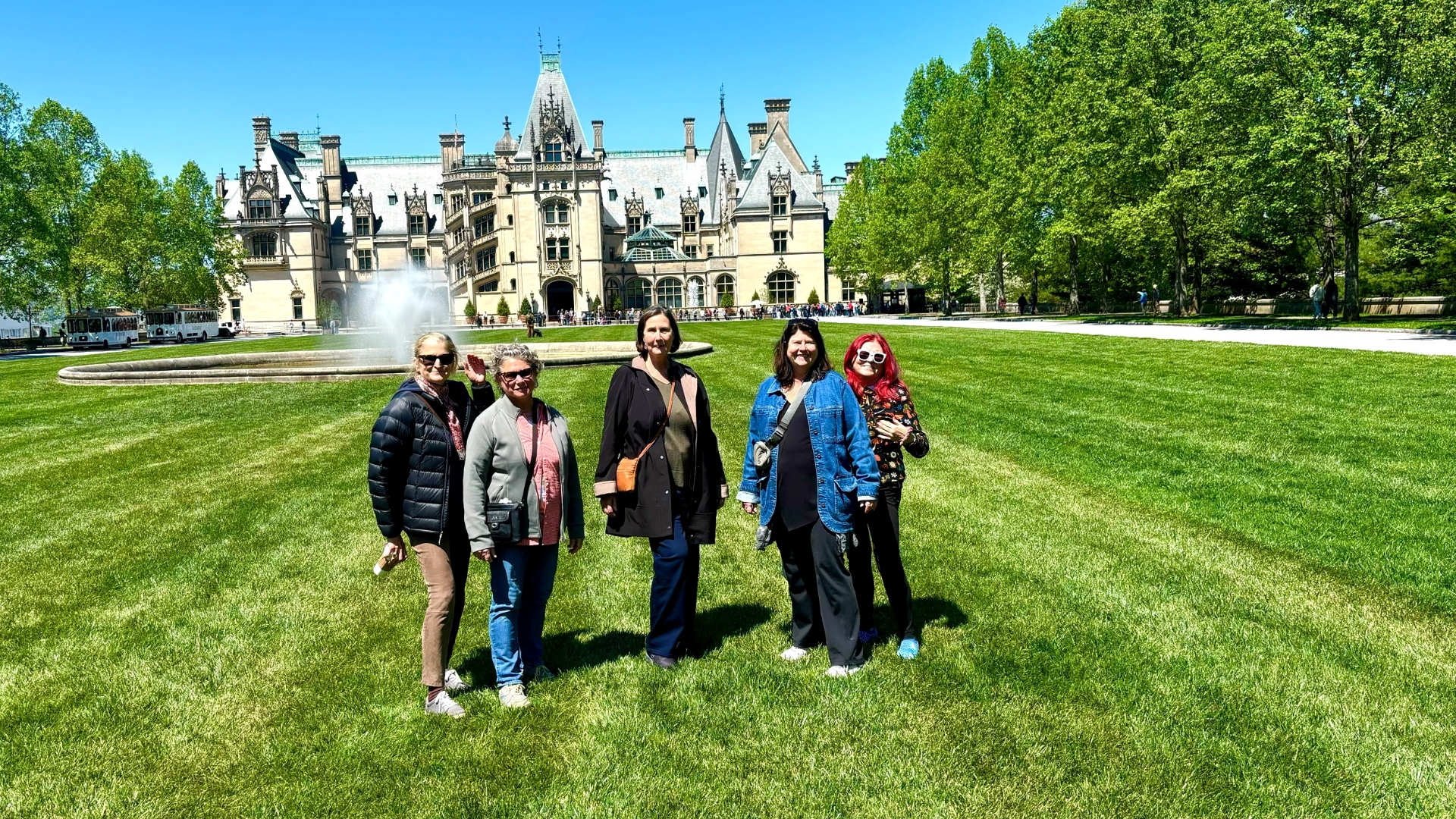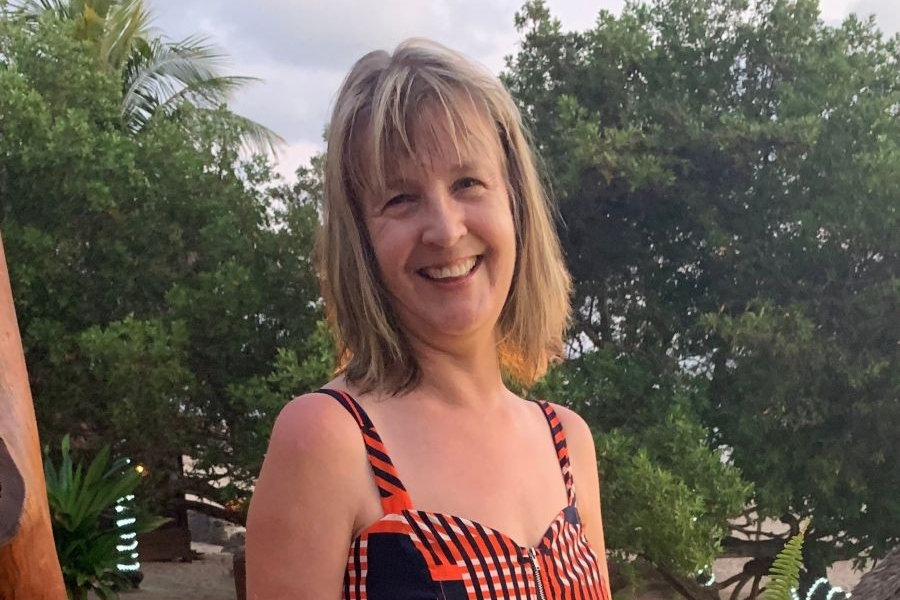Chances are you’ve seen Congresswoman Jackie Speier on the news. As a member of the Intelligence Committee, she’s a regular “go-to” for comments that speak the truth to power. Speier was front and center during the Michael Cohen hearings, when she queried Cohen on how many times he had threatened people or entities on behalf of Trump during his 10-year employment. (Her guesstimate started at 50. The answer ended at 500.)
Recently, I heard Speier speak about her autobiography, Undaunted: Surviving Jonestown, Summoning Courage, and Fighting Back, and her life. I knew I wanted to know more.
I wasn’t disappointed. Once I began her book, I didn’t put it down. Every triumph was followed by a tragedy. If a screenwriter had penned her story it would have seemed over the top. Throughout, Speier’s personal grit and resolve were a constant.
Her Determined Early Days

Jackie Speier’s graduation photo.
Speier’s mother was a first-generation Armenian-American, whose family was largely decimated in the genocide of 1915. Her father was a German immigrant. Her paternal grandmother, a Catholic, convinced the Gestapo to release her Jewish husband from custody. Both of Speier’s parents modeled a strong work ethic for their children, and several women inspired her path: her aunt, her Grandmother Speier, and the outspoken nuns at Mercy High School, who helped her realize the importance of public service.
During her years at Mercy, Speier began to take on leadership roles. She also shed her given name, Karen, which she “hated.” When she chose her confirmation moniker, she took the name of St. Jacqueline, inspired by Jackie Kennedy. Despite parental disapproval, she became Jackie, developing a “fresh identity.”
The all-girls school allowed Speier to develop her voice and abilities without the pressure of “male judgement.” Her confidence grew, and so did a commitment to the Sisters’ example of social justice and the philosophy: “We cannot rely on others to take action.”
Speier took her first step toward political engagement when she volunteered for the local campaign of Leo Ryan. Those efforts—despite the cringe-inducing optics of being a “Ryan Girl,” distributing campaign literature dressed in 1960’s go-go garb—were her start.
She distributed campaign literature dressed in 60’s go-go garb.
Simultaneously, Speier was becoming more conscious of the issues that would burn through the 1960s. She writes of a 1968 episode, when as part of a group of black and white kids driving around San Francisco, they were stopped by police. The light bulb went off, illuminating the fact that “equality was not a shared privilege.”
Speier worked at Ryan’s Sacramento state office at the start of her sophomore year in college, then followed Ryan to Washington when he was elected to Congress. During the tumult of the Vietnam era and emerging liberation movements, Speier saw that the law could be used to help people in tangible ways. Ryan, recognizing Speier’s abilities, tapped her to be his legislative counsel.
And here is where Speier’s story hits its first wildly dramatic act.
Going to Guyana
Ryan had been implored by families in his district to investigate claims that loved ones were being forcibly held in a cult-like community in Guyana. After reviewing allegations of physical and sexual abuse and confinement, Ryan decided to visit the People’s Temple, which was led by the charismatic leader Jim Jones. Ryan asked Speier to be part of the team, which had no military escort or formal protection.
What followed was a frightening tale that captured headlines.
The visit went horribly wrong. At the Port Kaituma airstrip, as they prepared to leave Guyana, the Congressional delegation, NBC media crew, and members of the cult who wanted to return to the United States were ambushed by People’s Temple security guards loyal to Jones. Ryan was assassinated. Speier was shot five times, point-blank, by automatic weapons. It would be 22 hours before she received medical care. A wound in her leg was the size of a football. Her right leg and arm needed to be reconstructed.
Speier was shot five times, point-blank, by automatic weapons.
Two months later, Speier was discharged from the hospital with a new mantra as she moved forward in life. At 28 years old, she determined that she would “make every day count … live as fully as possible, and devote her life to public service.”
She would be a survivor and not a victim—and become more fearless. She threw her hat into the ring for the special election to fill Ryan’s seat. Despite recovering from injuries, she worked tirelessly and came in third out of a field of twelve Democrats.
Elected office did happen for Speier two years later, when she won a spot on the San Mateo County Board of Supervisors. As Speier discusses her political career, she has plenty to say about the sexism she encountered. She is relentlessly aware that “a far more critical standard is applied to female candidates.”
Early on, male colleagues nicknamed her “Poodle” because of her thick hair. Even worse, while she was in her 20s, she was sexually assaulted by Ryan’s chief of staff, but she remained silent and filled with shame. “There was nothing I could do about it,” she wrote. Speier emphasizes that “sexual harassment” was an unformulated concept during that era. She did, however, make sure she was never, ever alone in a room with the chief of staff again.
Where Is the Love?
Men and romance are a prominent part of Speier’s story, and she doesn’t hold back from honestly discussing her body-image fears about the scars from her Jonestown injuries. Other hurdles were in her path: A relationship that seemed to be on track with Ed Bacciocco, also a member of the San Mateo County Board of Supervisors, appeared promising. They became engaged—until Speier discovered that he was seeing another woman. For Speier, the dismal episode drove home the importance that her “worth and path in life” were not tied to a man’s “love and approval.” Speier writes, “You have to embrace [that this is] exactly who you are.”
Speier married Dr. Steve Sierra, chief of staff and head of the Emergency Department at Chope County Hospital in 1987. She became the first California legislator to give birth while serving in office (to a boy), and her new role as a mother informed her agenda. She pushed for child-safety laws and bills for mandatory car seats.
Yet life did not go swimmingly from there. She had two miscarriages. The second one required a medical abortion at 17 weeks, when the developing fetus moved down from the uterus into the vagina. Doctors tried to save the pregnancy but failed. She called it “one of the great tragedies of my life.”
Speier calls the loss of that pregnancy ‘one of the great tragedies of my life.’
Speier drew upon that experience 20 years later, when she called out
a Republican Congressman on the House floor for describing the emotionally scarring procedure she had undergone as “a fetal murder.” In a speech that went viral, Speier informed the Congressman that not only did he not know what he was talking about, but that she was one of “those women” he was denigrating in his comments.
Conceiving was difficult for Speier because of a bullet that had remained in her pelvic area. So she and her husband decided to adopt to expand their family. In another twist of fate, 10 days after Speier had brought home an adored baby boy, the birth mother changed her mind and reclaimed the child.
It was one more shattering moment, but Speier wrote, “Life is not always fair. Life is just what you get.” Always proactive, Speier passed legislation in California that would revise adoption guidelines. It reduced the time span for birth parents to reclaim their infants, from six months to 120 days.
When the Unthinkable Happens
In 1994, the 43-year old Speier planned a run for the California secretary of state. Then she learned that she was unexpectedly pregnant—and, given her history, she was considered to be high-risk. She gave up her candidacy without a second thought.
Just when all the pieces seem to be falling into place, Speier was faced with what she believes was the “most difficult decision of her life.”
Two months into her pregnancy, her husband was in a major car accident and pronounced brain-dead. It fell to Speier to give the directive to take him off of life support. She describes the aftermath of this trauma as “bewildering mazes of grief.”
Until we’re tested, we have no idea how much we are capable of achieving.
Speier found herself confronting a morass of worries, from how to carry on as a single parent to financial troubles and work challenges. She was overwhelmed … until she wasn’t. Throughout her book, Speier shares aphorisms like, “Giving up was never an option or consideration. Until we’re tested, we have no idea how much we are capable of achieving.” And she lives by them.
There was a happy ending in Speier’s personal life. In 2001, she married Barry Dennis, an investment consultant, whom she describes as “grounded” and supportive. He adopted her two children. Seven years later, she was elected to Congress in the seat that had been held by her mentor, Ryan. The circle was completed.
Putting the Public Good First
Since 2008, while serving in Congress, Speier has made taking on powerful entities her calling card. She was included in the 2018 “Politico 50” list of top influencers altering American politics, while championing #MeToo survivors, gun rights (while in the State Legislature in 1989, Speier co-authored the ban on assault weapons in California, which she calls a “pinnacle” of her career), Planned Parenthood, and the Equal Rights Amendment.
Despite her 12-hour workdays, Speier made a point of squeezing in a late-night call to personally answer some questions for NextTribe. She was open and warm, and explained that she had written her book “to convey that we are all resilient people.”
I asked her about the significance of her friendships with women, whom she emphasized had carried her through the toughest patches of her journey.
“Female friendships are critical to one’s sanity,” she said. “I can’t think of my life without them or say enough about how important they have been to me.”
Female friendships are critical to one’s sanity.
We discussed the unprecedented number of new female congresswomen, and I asked her whether she thought it would have an impact.
“Without a doubt!” she responded. “Women as lawmakers are going to be critical. It’s a very patriarchal society. We have an obligation. Women’s voices of all ages are important right now.” Speier launched into a rundown of her Pink Tax Repeal Act initiative, which takes on the higher prices women pay on goods and services.
Speier also spoke animatedly about the energy women candidates were bringing to the Democratic Presidential primary race. “It’s so exciting. I know them all, and they’re all competent leaders.” On the challenges of getting older and staying visible, Speier pointed to “icons” Nancy Pelosi and Ruth Bader Ginsburg as examples. “It’s important that we put ourselves out there,” she said. “And you have to retain a joie de vivre. You have to put effort into it.”
After all that she has been through—the calamities and the successes—it’s not surprising that she ends our talk with this: “I’m not afraid to make noise. And I’m not afraid to fight.”
***
Marcia G. Yerman, based in New York City, writes profiles, interviews, essays, and articles focusing on women’s issues, human rights, the environment, politics, culture and the arts. Her work has been published by the New York Times, truthout, AlterNet, The Raw Story, Women News Network, and The Women’s Media Center. Her articles are archived at mgyerman.com. You can find her on Twitter @mgyerman.
All photos are courtesy of Jackie Speier.





















0 Comments